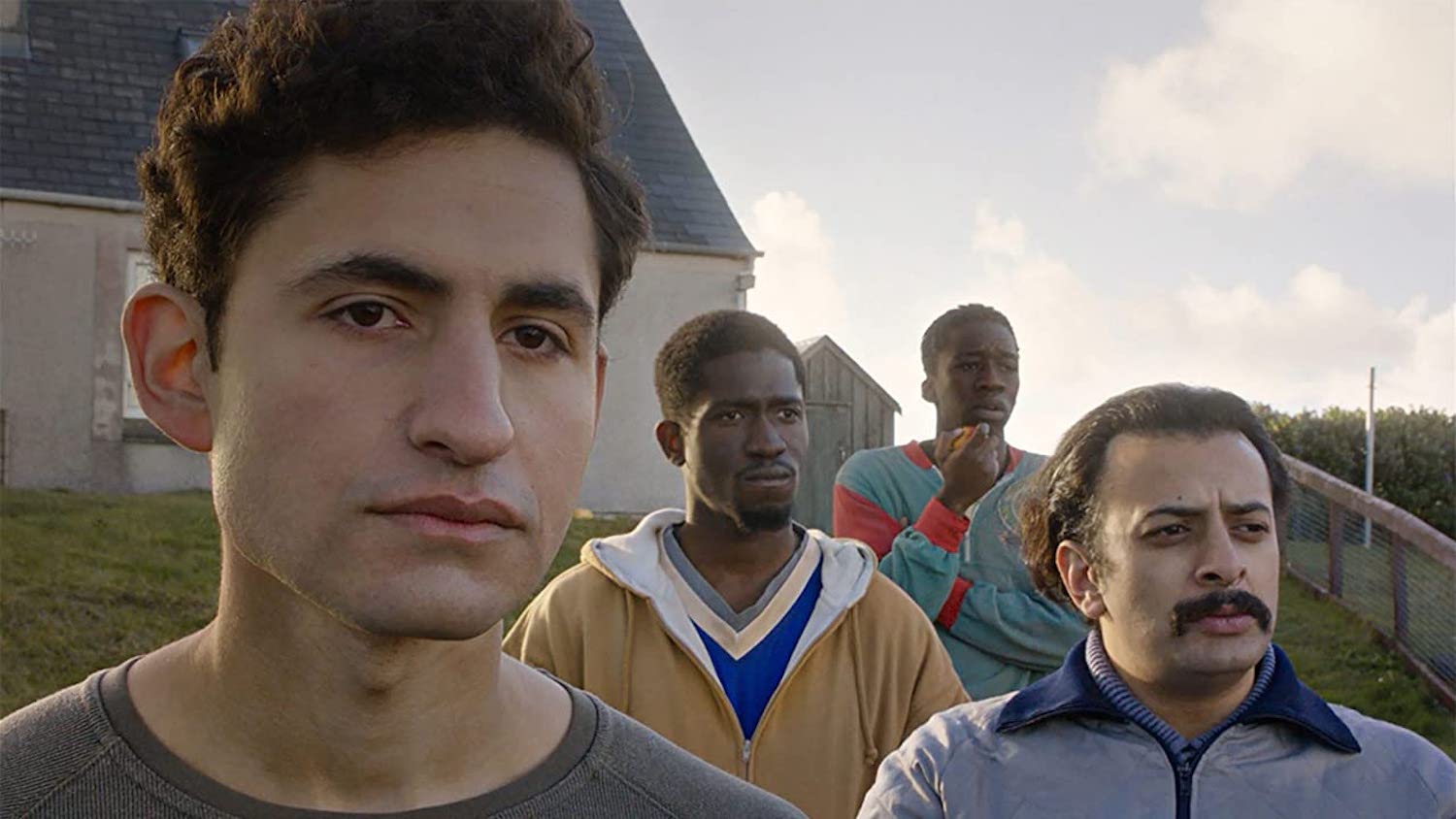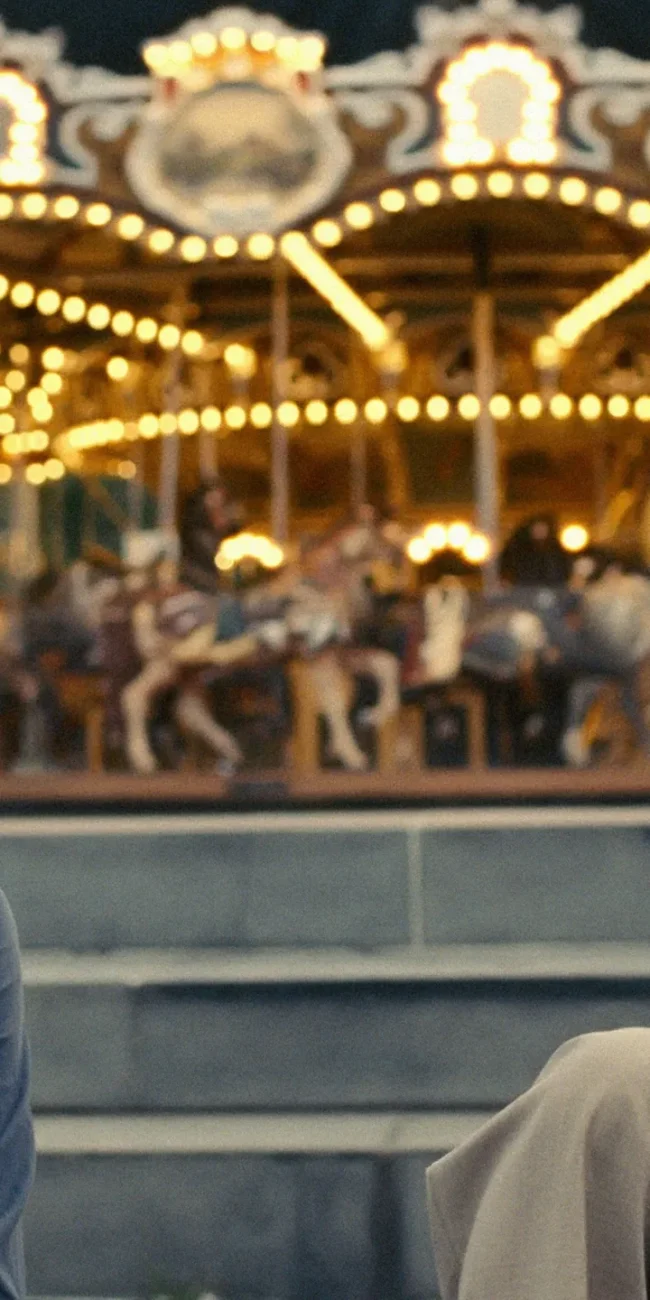
(Ben Sharrock’s Limbo is in theaters now via Focus Features. Like what you see here on Hammer to Nail? Why not give just $1.00 per month via Patreon to help keep us going?)
In the opening scene of Limbo, we watch as a middle-aged white man and woman teach a class entitled “Cultural Awareness 101. Sex: Is a Smile an Invitation?” Of indeterminate nationality (her accent is hard to place, and he doesn’t speak, though is called Boris), they perform an odd ritual of dance and deadpan attempted seduction, he grabbing her and she pushing him away. A seemingly stunned (or just numbed) group of diverse men of color look on, unsure of what to make of the scene. This is bone-dry humor territory, worthy of the films of Finnish filmmaker Aki Kaurismäki.
Welcome to the land of refugees as envisioned by Scottish director Ben Sharrock (Pikadero). In his sophomore feature, he takes one of the great crises of our modern world and wryly humanizes it in deft, cinematic strokes. The men in that class may all hail from different countries, but they are here together as displaced people waiting for asylum. Some speak Arabic, others not, so English is often their common language. How they came to be housed on a remote Scottish island (the film was shot on Ulst, in the Outer Hebrides, here not named) is never quite explained, though they and we assume it is to keep them out of sight and away from trouble (of the anti-immigrant variety).
The locals are genial enough, despite some unfortunate casual racism, and in a way are so isolated from the rest of the world that they welcome any kind of distraction. When a fisherman tells our protagonist, Omar (Amir El-Masry, Lost in London), about the dangers of “Pakis” (a word Omar fails to understand) and then Omar, himself, uses the term in a local grocery store, the owner (a Sikh), calmly corrects him, cutting him slack because he is also “a brown person.” So it goes. Sharrock hardly ignores or minimizes bias, prejudice or tragedy, but refuses to treat his characters as mere victims. They are human beings, with all the complexity that entails.
Omar is from Syria, and talks occasionally, by phone, to his parents, who remain in Turkey seeking their own asylum there. He has a brother who stayed home to fight, a source of constant tension and worry: should he have done the same, and will his brother survive? Omar walks everywhere with an oud (a stringed instrument which he likens to a guitar, when asked) locked in a case, his arm in a cast and he, for the moment, unable to play. He keeps it with him as a symbol of all he has lost, flashing back to happy concert memories to stave off despair.
Omar’s best friend in the refugee center is Farhad (Vikash Bhai, Martin Shral on the CW’s Pandora), from Afghanistan, who decides, uninvited, to offer himself as Omar’s manager and agent should he ever start playing the oud again. He has his own quiet sadness, but also a desire to live and love that is hard to suppress. He adores Freddie Mercury, a fellow Zoroastrianism, and when he steals a chicken (as a pet) from a nearby farm, he names him after his hero. There are more supporting characters here, including two brothers whose story ends in misfortune, all of whom enliven the narrative with rich detail.
There is a danger in this kind of story, however, that we might take too much delight in the quirkiness of the enterprise. Whether it is the awkwardness of refugee life or the rough provinciality of the Ulst natives, Limbotraffics in the well-worn aesthetics of cross-cultural comedies, mining the fish-out-of-water scenario for laughs. Still, Sharrock ultimately remains respectful to all (well, maybe not to Boris and his partner, Helga), and given the far more serious turn of the movie’s second half, never minimizes the real-world consequences of asylum policy. Given the horrors out there, it’s a relief to be able to not only cry, but occasionally laugh, as Limbo moves towards its satisfying conclusion.
– Christopher Llewellyn Reed (@ChrisReedFilm)











